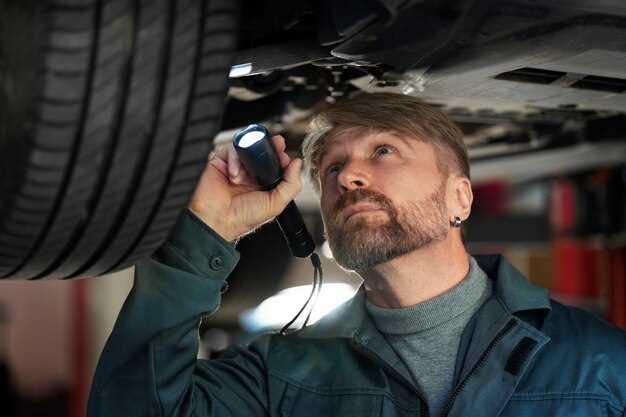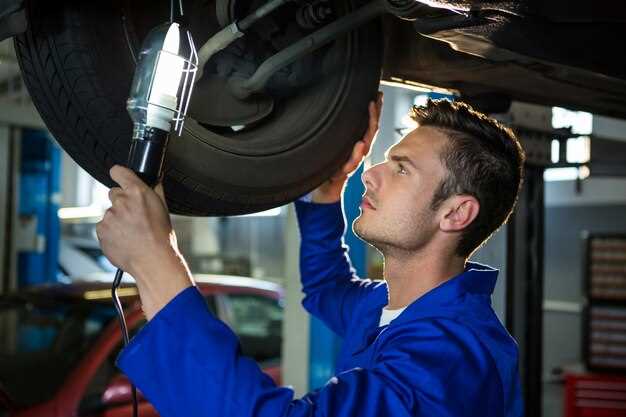
Brake noises are a common concern for vehicle owners, often serving as an alarming indication of underlying issues within the braking system. These noises can manifest as squeaks, grinding, or rattling sounds, and they may stem from a variety of causes. Understanding these causes is crucial for maintaining the safety and performance of your vehicle.
One prevalent reason for brake noises is the wear and tear of brake pads. As they age, the material can degrade, leading to increased friction and noise during application. Additionally, dust and debris accumulation can also contribute to unwanted sounds. This buildup can interfere with the smooth operation of the brake system, resulting in irritating noises that indicate the need for attention.
Another major factor is the condition of the rotors. Warped or damaged rotors can create uneven contact with the brake pads, leading to vibration and noise. Regular inspection and maintenance of these components are essential to ensure optimal braking performance. In this article, we will explore common brake noises, their causes, and effective solutions to address them, ensuring your vehicle remains safe and reliable on the road.
Understanding the Different Types of Brake Noises
Brake noises can vary widely, and understanding the specific types can help in diagnosing issues effectively. Common brake noises include squeaking, grinding, thumping, and hissing sounds. Each type indicates different underlying problems.
Squeaking noises typically arise from worn brake pads. As the friction material wears down, a metal indicator may contact the rotor, producing a high-pitched sound. This is often a warning that the pads require replacement. Additionally, moisture or dust accumulation can also lead to temporary squeaks after the brakes have been applied, but persistent noises should be investigated.
Grinding noises suggest a more serious issue, generally indicating that the brake pads have worn down to the metal backing. This can lead to rotor damage if not addressed promptly. If grinding occurs, it is crucial to inspect the brake components immediately and replace the pads and possibly the rotors.
Thumping or rumbling sounds can be a sign of warped rotors or improperly mounted brake components. Warped rotors can cause uneven contact with the brake pads, leading to vibrations that produce thumping noises. It’s essential to have the rotors resurfaced or replaced to ensure smooth braking performance.
Hissing or whistling sounds may indicate air escaping from a brake line or issues with the brake booster. This noise can mean there is a leak that needs attention. A thorough inspection of the brake system is necessary to identify and repair any leaks.
Recognizing these various brake noises is essential for maintaining vehicle safety. Each sound serves as an important signal regarding the condition of the braking system. Prompt diagnosis and appropriate repairs can prevent more extensive damage and ensure effective braking performance.
Identifying Common Causes of Squeaking Sounds
Squeaking noises from brakes can be an indication of various underlying issues. Understanding these causes is essential for timely intervention and ensuring safe vehicle operation. One of the most common reasons for squeaking sounds is worn brake pads. As the brake pads wear down, the friction material becomes less effective, often leading to metal-on-metal contact, which produces a squeaking noise.
Another frequent cause is the presence of moisture or debris. Water buildup, especially in humid conditions, can lead to temporary squeaking as rust forms on the brake components. Similarly, dirt, dust, or grime can accumulate on the brake pads or rotors, resulting in increased friction and noise. Utilizing a brake cleaner can help mitigate this issue.
Improper installation of brake components can also lead to squeaking sounds. If brake pads are not aligned correctly or if the calipers are not mounted securely, abnormal wear may occur, contributing to noise. Additionally, the lack of lubrication on certain parts, such as the caliper slides or pad backing, can cause squeaking due to increased friction. Regular maintenance can help prevent this problem.
Another important factor to consider is the type of brake material used. Some brake pads, particularly those made from harder materials, are prone to producing noise, especially during the break-in period. Drivers should be aware that some noise may be normal depending on the type of pads installed.
Lastly, issues with the rotors can be a contributing factor. Warped or uneven rotors can cause brakes to squeak, as they do not provide a smooth surface for the brake pads to grip. If the rotors are worn or damaged, they may need to be resurfaced or replaced to eliminate the noise.
Diagnosing Grinding Noises: What to Look For
Grinding noises when braking can indicate several underlying issues with your vehicle’s brake system. One of the most common causes is worn brake pads. As the pads wear down, adequate material to create friction diminishes, leading to metal-on-metal contact with the rotors, which produces a distinct grinding sound. Checking the thickness of your brake pads is essential; if they are less than a quarter-inch thick, they should be replaced.
Another potential culprit is damaged or scored rotors. When the brake pads wear away, they can cause grooves or scratches on the rotor surface. If you hear a grinding noise along with vibrations while braking, it’s crucial to inspect the rotors for damage. A visual inspection may reveal irregularities, but a precise measurement of rotor thickness is necessary to determine if they need resurfacing or complete replacement.
Additionally, foreign debris trapped between the brake pad and rotor can lead to grinding noises. Small rocks or metal shavings can become lodged in the brake assembly during driving. To diagnose this issue, a thorough inspection of the brake components should be performed, removing any debris found.
In some cases, inadequate lubrication of brake hardware can cause grinding sounds. The brake calipers, slides, and other moving parts require proper lubrication for optimal performance. When these components become dry, they may bind and create noise. Inspecting and applying appropriate grease to these parts can often resolve the issue.
Finally, it is essential to consider the age and overall condition of the braking system. If the vehicle has high mileage or has not undergone regular maintenance, components may begin to fail. A complete brake system inspection, including brake lines, calipers, and master cylinder, can help determine if replacements are necessary.
By attentively diagnosing the source of grinding noises in your brakes, you can take prompt action to address the issue, ensuring your vehicle remains safe and functional on the road.
Assessing Clicking Noises in Your Brake System
Clicking noises in your brake system can indicate various underlying issues that require prompt attention. One common cause of these sounds is the wear of brake pads. As the pads thin over time, the metal backing may contact the rotor, producing a clicking or clunking noise during braking.
Another potential source of clicking sounds could be loose or damaged brake hardware. Components such as caliper bolts, shims, or anti-rattle clips may become loose or wear out, resulting in movement that generates noise. It is essential to inspect these components for proper fit and integrity.
In some cases, clicking noises may arise from foreign debris trapped between the rotor and brake components. Small stones or dirt can get lodged, leading to unwanted sounds as the vehicle moves. Cleaning the braking surface and inspecting for debris should be a priority.
Additionally, a malfunctioning brake caliper can cause clicking noises. If the caliper fails to retract properly, it may remain in contact with the rotor, creating a clicking sound during rotation. Regular inspection and maintenance of the caliper mechanics are crucial to prevent such issues.
To assess clicking noises effectively, it’s advisable to perform a thorough inspection of the brake system. Start by visually examining the brake pads and rotors for signs of wear or damage. Next, check the caliper assembly and ensure all fasteners are secure. Finally, listen closely while driving to isolate the noise and determine if it occurs during braking, turning, or when moving at specific speeds.
If the noise persists or if you are unable to identify the source, consulting a professional mechanic is recommended. They can utilize specialized tools and expertise to diagnose the issue accurately and provide appropriate solutions to restore your brake system’s functionality and safety.
Solutions for Eliminating Brake Noises: Step-by-Step Guide
Brake noises can be annoying and, in some cases, can indicate serious issues with your braking system. Here’s a step-by-step guide to diagnose and fix common brake noise problems.
-
Identify the Type of Noise
- Squeaking: Often caused by worn brake pads or debris between pads and rotor.
- Grinding: Indicates severe wear on brake pads, possibly damaging the rotors.
- Thumping: May result from loose components or warped rotors.
- Hissing: Could be air escaping from a brake line or issues with the master cylinder.
-
Visual Inspection
Perform a thorough inspection of the braking components:
- Check brake pads for wear. If they are less than 1/4 inch thick, it’s time for replacement.
- Inspect rotors for grooves or uneven surfaces.
- Examine calipers and brackets for rust or corrosion.
- Look for debris or buildup around the brake assembly.
-
Replace Worn Components
If any components are damaged or excessively worn, replace them:
- Install new brake pads: Choose high-quality pads that are designed for low noise.
- Replace rotors if they are beyond resurfacing.
- Consider upgrading to noise-damping hardware, like shims or anti-vibration clips.
-
Cleaning
A clean brake system can significantly reduce noise:
- Use a brake cleaner spray to remove dust, dirt, and debris from pads and rotors.
- Ensure all components are free of grease or oil, which can contribute to noise.
-
Lubrication
Applying lubricant can help with quieting noise:
- Apply anti-squeal grease to the back of brake pads, avoiding contact with friction surfaces.
- Lubricate caliper slides to ensure smooth operation and eliminate rattling noises.
-
Test Drive

After making repairs, conduct a test drive:
- Listen for any remaining noises while applying brakes in different conditions (slow stops, quick stops).
- Assess the overall feel of braking; ensure there are no vibrations or unusual sensations.
-
Consult a Professional
If the problem persists despite following these steps:
- Seek advice from a qualified mechanic.
- Consider getting a full brake system inspection to identify deeper issues.
By following this guide, you can effectively eliminate brake noises and ensure your braking system functions safely and smoothly.
When to Consult a Professional for Brake Issues
Brakes are a crucial component of vehicle safety, and any signs of malfunction should be taken seriously. While some brake noises may be minor and easily addressed at home, certain issues require the expertise of a professional. Here are key indicators that it’s time to seek professional help for brake problems:
| Indicator | Description |
|---|---|
| Unusual Noises | If you hear grinding, squeaking, or rattling sounds when applying the brakes, it could indicate worn brake pads or other serious issues. |
| Vibration | Steering wheel or brake pedal vibration during braking can signal warped brake rotors or uneven pads, requiring professional assessment. |
| Warning Lights | If the brake warning light on your dashboard illuminates, this suggests a malfunction that necessitates immediate attention from a technician. |
| Poor Responsiveness | Delayed or unresponsive brakes can indicate fluid leaks or other significant brake system failures that need urgent professional evaluation. |
| Brake Fluid Leaks | Noticeable leaks under your vehicle or a drop in brake fluid levels signal a potential brake system failure requiring immediate professional inspection. |
| Pedal Issues | If the brake pedal feels soft, spongy, or sinks to the floor, it may indicate air in the brake lines or fluid leaks and should be inspected by a professional. |
Timely intervention by a qualified mechanic can prevent further damage and ensure your vehicle remains safe to drive. Never ignore brake issues; prioritizing brake health is essential for your safety on the road.















